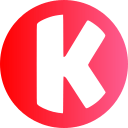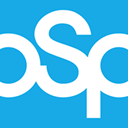Uncovering the Best Windows App Studio Alternatives for Your Next Project
Windows App Studio was a fantastic tool that allowed anyone to create mobile applications for Windows devices with remarkable speed and without extensive coding knowledge. Its promise of enabling users to build an app in an hour for free, with immediate use on Windows devices and the option to download source code for further extension, made it a go-to for many. However, with its discontinuation, many developers and aspiring app creators are now searching for robust and user-friendly Windows App Studio alternative solutions. This article dives into the top platforms that can fill the void left by Windows App Studio, helping you continue your app development journey seamlessly.
Top Windows App Studio Alternatives
Whether you're looking for drag-and-drop simplicity, powerful coding environments, or specialized features, these alternatives offer diverse capabilities to suit various app development needs.

Thunkable
Thunkable stands out as a powerful drag-and-drop app builder, created by two of the original MIT engineers behind MIT App Inventor. This platform offers a freemium model, providing excellent features like mobile app creation, visual programming, and even AdMob integration. For those who appreciated Windows App Studio's visual approach, Thunkable offers a highly intuitive and feature-rich environment for building cross-platform mobile apps.

MIT App Inventor
MIT App Inventor is a well-established, block-based, visual coding environment that empowers everyone to learn and build mobile apps. As a free and open-source web-based platform, it mirrors Windows App Studio's accessibility for beginners, focusing on visual programming and building blocks. Its cloud coding and online editing features make it a robust choice for educational purposes and quick prototyping.

kodeWeave
kodeWeave is a real-time coding playground for HTML, CSS, and JavaScript, similar to JSFiddle and JSBin, but with the added benefit of offline functionality. While Windows App Studio focused on rapid app creation, kodeWeave caters to those who want more control over the underlying code. As a free and open-source platform available on Mac, Windows, Linux, and Web, it offers powerful developer tools, an IDE, and real-time collaboration for web development, making it a strong alternative for developers comfortable with web technologies.

AppsGeyser
AppsGeyser offers one of the easiest DIY native mobile app creation platforms available. It's a free, web-based tool that allows you to create an app in just two easy steps, much like the promise of rapid creation with Windows App Studio. Its template-based approach makes it incredibly user-friendly for anyone looking to quickly generate a mobile application without any coding knowledge.

appSpotr
appSpotr empowers everyone to publish iOS and Android apps for free, eliminating the need for coding knowledge. Similar to Windows App Studio's drag-and-drop functionality, appSpotr provides a commercial web-based platform that simplifies the app creation process. If you're aiming for cross-platform compatibility with an intuitive visual builder, appSpotr is a compelling option.

Windows Template Studio
For those specifically looking to continue developing Universal Windows Platform (UWP) apps, Windows Template Studio is a direct spiritual successor to the philosophy of Windows App Studio. This free and open-source extension for Microsoft Visual Studio quickly builds a UWP app using a wizard-based UI, providing a foundation of Windows 10 patterns and best practices. It's the ideal choice if you intend to stay within the Microsoft ecosystem for your app development.
The landscape of app development tools is vast and constantly evolving. While Windows App Studio offered a unique entry point into mobile app creation, these alternatives provide diverse pathways to achieve similar, and often more advanced, results. Whether you prioritize ease of use, open-source flexibility, or deep coding capabilities, exploring these options will help you find the best fit for your specific app development needs.